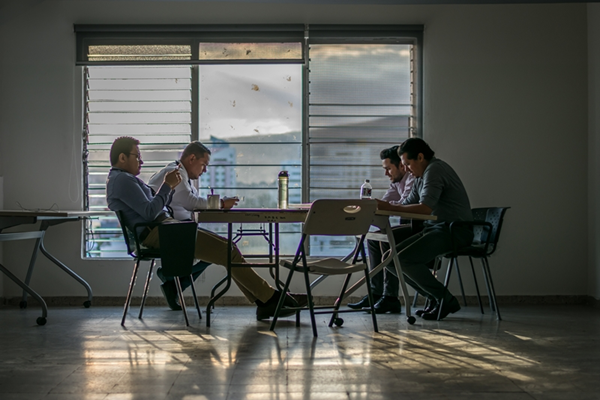The landscape of modern workspaces is constantly evolving, driven by advancements in technology and changing preferences among professionals. Among these changes, private day offices have emerged as flexible, on-demand spaces catering to the needs of remote workers, freelancers, and small teams. In this article, we’ll explore the innovative technologies transforming day offices into hubs of productivity, collaboration, and comfort.
Smart office solutions
Innovative technology has revolutionised the concept of traditional office setups, and smart office solutions are at the forefront of this transformation. Smart desks, equipped with sensors and IoT (Internet of Things) connectivity, are redefining how we interact with our work environment. These desks can automatically adjust height, monitor posture, and even remind users to take breaks, promoting ergonomics and well-being.
Moreover, smart office solutions extend beyond individual desks. Smart lighting systems adapt to natural light conditions, optimising energy usage and creating a comfortable atmosphere. Integrated climate control systems ensure optimal temperature and air quality, enhancing productivity and comfort for occupants.
Virtual collaboration platforms
With the rise of remote work, virtual collaboration platforms have become essential tools for distributed teams. In day offices, these platforms enable seamless communication and collaboration among team members, regardless of their physical location. Features such as video conferencing, screen sharing, and real-time document collaboration facilitate productive meetings and brainstorming sessions.
However, the latest advancements in virtual collaboration go beyond conventional video conferencing. Immersive technologies like virtual reality (VR) and augmented reality (AR) are revolutionising the way teams collaborate remotely. Virtual meeting rooms recreate the experience of face-to-face interactions, allowing participants to engage in lifelike environments and interact with virtual objects.
AI-driven workspace optimisation
Artificial intelligence (AI) is playing an increasingly prominent role in optimising office spaces for efficiency and comfort. AI-powered analytics collect data on workspace usage, environmental conditions, and user preferences, enabling proactive adjustments and optimizations. For example, AI algorithms can analyse occupancy patterns to allocate resources efficiently and reduce energy consumption during periods of low demand.
Furthermore, AI-driven personalisation enhances the user experience in day-to-day offices. Smart assistants learn users’ habits and preferences, providing personalised recommendations for workspace layout, lighting, and temperature settings. This level of customisation fosters a sense of ownership and comfort, ultimately boosting productivity and satisfaction.
Sustainable Technology Solutions
In an era of increasing environmental awareness, sustainability has become a key consideration in workspace design. Innovative technologies are driving sustainability initiatives in day offices, reducing carbon footprints, and promoting eco-friendly practices. Energy-efficient lighting systems, renewable energy sources, and smart building management systems contribute to lower energy consumption and operational costs.
Additionally, sustainable technology solutions extend to waste reduction and resource management. Recycling programmes, composting facilities, and water-saving fixtures minimise environmental impact and promote responsible stewardship of resources. By adopting these sustainable practices, day offices can align with corporate social responsibility goals and contribute to a greener future.
Conclusion
Innovative technology is reshaping the landscape of day offices, transforming them into dynamic, efficient, and sustainable workspaces. Smart office solutions enhance comfort and productivity, virtual collaboration platforms enable seamless communication among remote teams, AI-driven optimisation optimises resource usage, and sustainable technology solutions promote environmental responsibility. By embracing these advancements, day offices can provide a superior working experience for professionals, fostering creativity, collaboration, and well-being.
